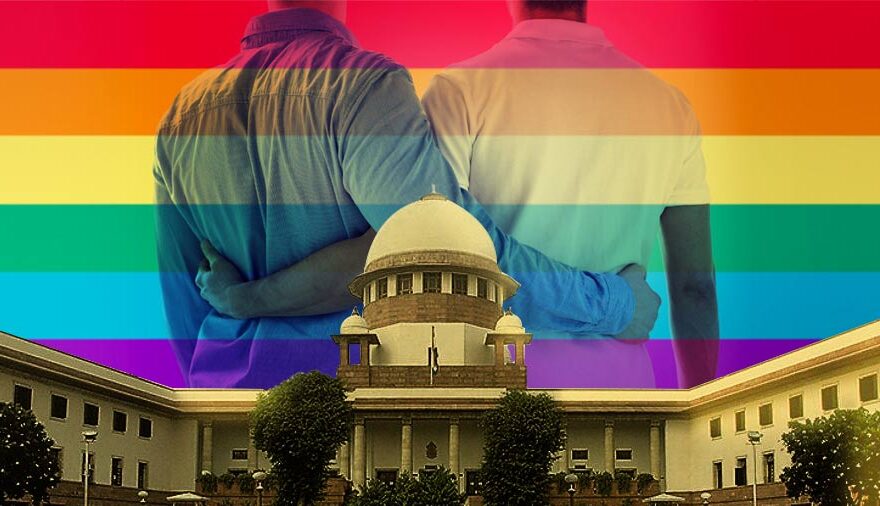
The 4th day of hearing in the Supreme Court today on a batch of pleas seeking legal sanction for same-sex marriage witnessed 2 members of the 5-judge Constitution bench joining the proceedings virtually.
While Chief Justice of India DY Chandrachud, Justice Hima Kohli and Justice PS Narasimha sat in the courtroom, Justice SK Kaul and Justice SR Bhat joined the proceedings virtually.
The CJI stated that “We will have a hybrid Constitution bench hearing today because Justice Kaul is recovering from a fall. Justice Bhat tested positive (for COVID-19) on Friday. So, they have joined virtually.”
CJI Chandrachud also told Justice Kaul that if he wants, the bench will take a small break in between so that he would be comfortable during the day-long hearing.
The 4th day of hearing in the matter resumed with the senior advocate Geeta Luthra, appearing for the petitioners, and advancing her submissions.
Justice Bhat stated that he has noticed 4-5 volumes of documents, including the entire judgment in the historic Kesavananda Bharati case that laid down the path-breaking concept of the “basic structure” of the Constitution, that has been filed in the matter.
The CJI asked that “We have put the entire volume of the Kesavananda Bharati case and everything associated with it on the web page (of the apex court). Who has included this here?”
Therefore, the top court on Monday dedicated to people, including researchers, a web page containing details of the arguments, written submissions and judgment in the historic Kesavananda Bharati case.
Monday was the 50th anniversary of the Kesavananda Bharati verdict.
While hearing arguments in the same-sex marriage matter, the apex court on April 20 stated that it may be redefining the “evolving notion of marriage” as the next step after decriminalizing consensual homosexual relationships which implicitly recognized that same-sex people could live in a stable marriage-like relationship.
The bench didn’t agree to the contention that, unlike heterosexuals, same-sex couples can’t take proper care of their children.
Therefore, it pondered over the relationship between a man and a woman and is so fundamental to the Special Marriage Act that substituting them with the term “spouses” will amount to redoing the legislation.
Elaborately referring to its 2018 judgment that decriminalized consensual gay sex, the top court stated that it led to a situation where 2 consenting homosexual adults can live in a marriage-like relationship and the next step could be to validate their relationship as a marriage.
Senior advocate KV Viswanathan, appearing for one of the petitioners, argued that recognition should be given to same-sex marriage and that procreation isn’t a valid ground to deny such couples the right to marry.
Further, he said LGBTQIA (lesbian, gay, bisexual, transgender, queer, questioning, intersex, pansexual, two-spirit, asexual, and ally) people are as much qualified to adopt or bring up children as heterosexual couples.
During the hearing on April 19, the apex court stated that the state can’t discriminate against an individual based on sexual characteristics where the person has no control.
It asserted that the Centre has no data to back up its claim that the concept of same-sex marriage is “elitist” or “urban”.
The Centre, in one of its affidavits filed in the apex court, termed the petitions a reflection of an “urban elitist” view for social acceptance and said that the recognition of marriage is essentially a legislative function which the courts should refrain from adjudicating.




